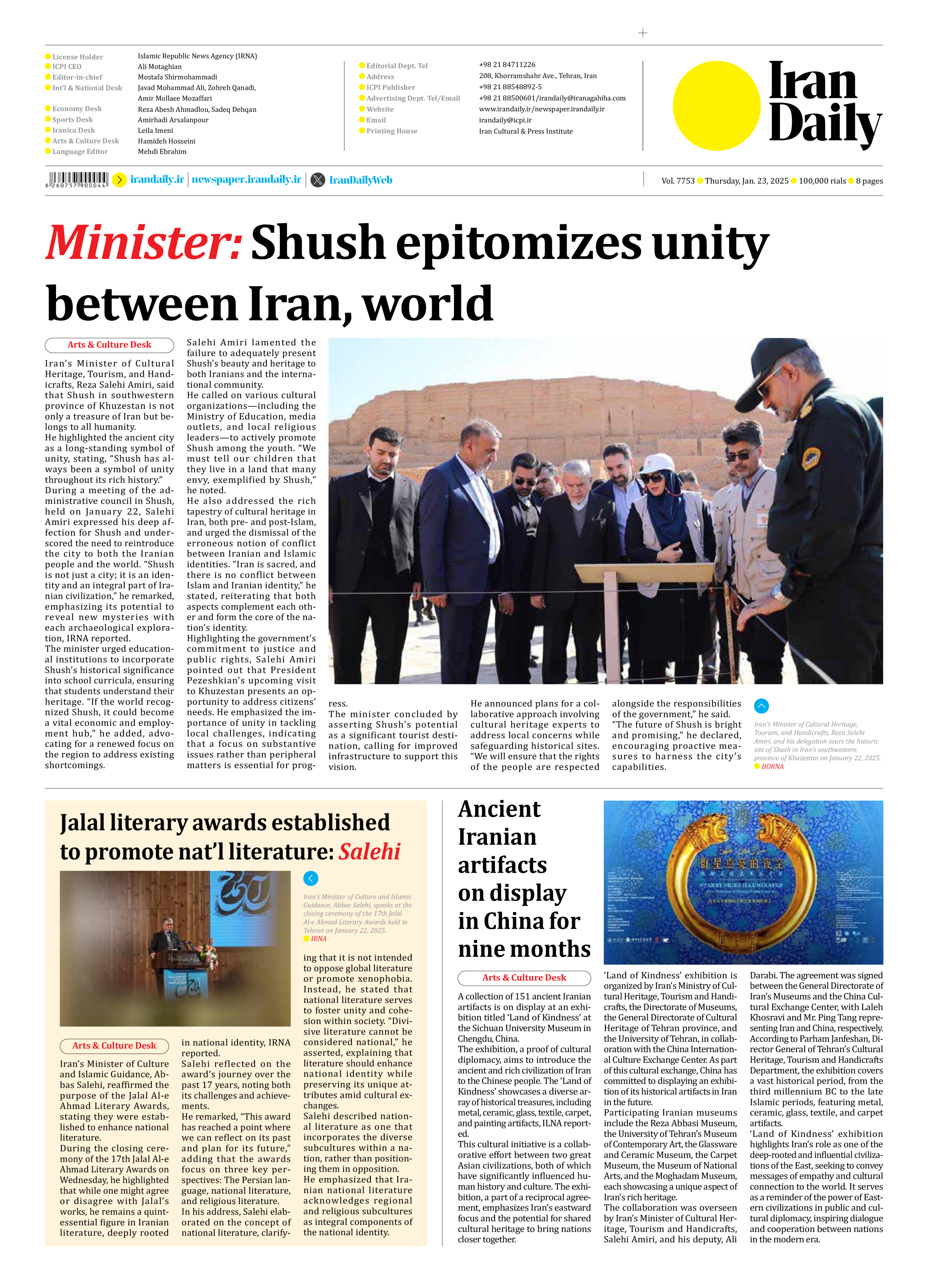
Minister: Shush epitomizes unity between Iran, world
Iran’s Minister of Cultural Heritage, Tourism, and Handicrafts, Reza Salehi Amiri, said that Shush in southwestern province of Khuzestan is not only a treasure of Iran but belongs to all humanity.
He highlighted the ancient city as a long-standing symbol of unity, stating, “Shush has always been a symbol of unity throughout its rich history.”
During a meeting of the administrative council in Shush, held on January 22, Salehi Amiri expressed his deep affection for Shush and underscored the need to reintroduce the city to both the Iranian people and the world. “Shush is not just a city; it is an identity and an integral part of Iranian civilization,” he remarked, emphasizing its potential to reveal new mysteries with each archaeological exploration, IRNA reported.
The minister urged educational institutions to incorporate Shush’s historical significance into school curricula, ensuring that students understand their heritage. “If the world recognized Shush, it could become a vital economic and employment hub,” he added, advocating for a renewed focus on the region to address existing shortcomings.
Salehi Amiri lamented the failure to adequately present Shush’s beauty and heritage to both Iranians and the international community.
He called on various cultural organizations—including the Ministry of Education, media outlets, and local religious leaders—to actively promote Shush among the youth. “We must tell our children that they live in a land that many envy, exemplified by Shush,” he noted.
He also addressed the rich tapestry of cultural heritage in Iran, both pre- and post-Islam, and urged the dismissal of the erroneous notion of conflict between Iranian and Islamic identities. “Iran is sacred, and there is no conflict between Islam and Iranian identity,” he stated, reiterating that both aspects complement each other and form the core of the nation’s identity.
Highlighting the government’s commitment to justice and public rights, Salehi Amiri pointed out that President Pezeshkian’s upcoming visit to Khuzestan presents an opportunity to address citizens’ needs. He emphasized the importance of unity in tackling local challenges, indicating that a focus on substantive issues rather than peripheral matters is essential for progress.
The minister concluded by asserting Shush’s potential as a significant tourist destination, calling for improved infrastructure to support this vision.
He announced plans for a collaborative approach involving cultural heritage experts to address local concerns while safeguarding historical sites. “We will ensure that the rights of the people are respected alongside the responsibilities of the government,” he said.
“The future of Shush is bright and promising,” he declared, encouraging proactive measures to harness the city’s capabilities.







